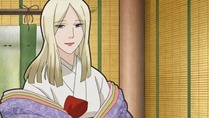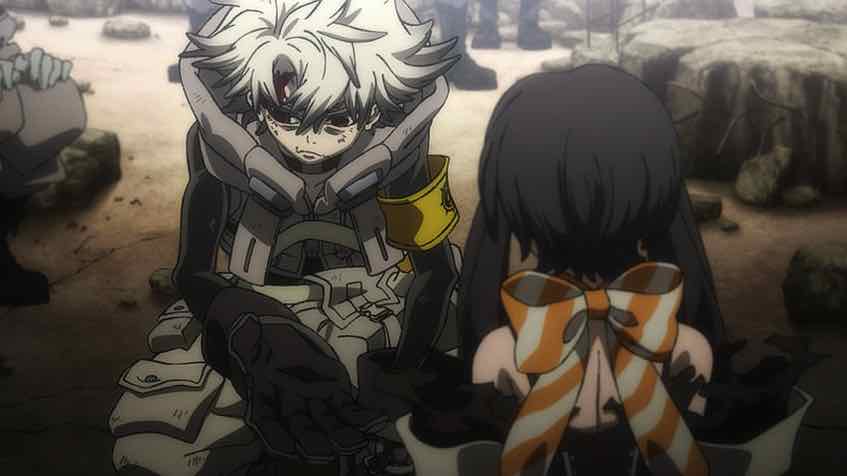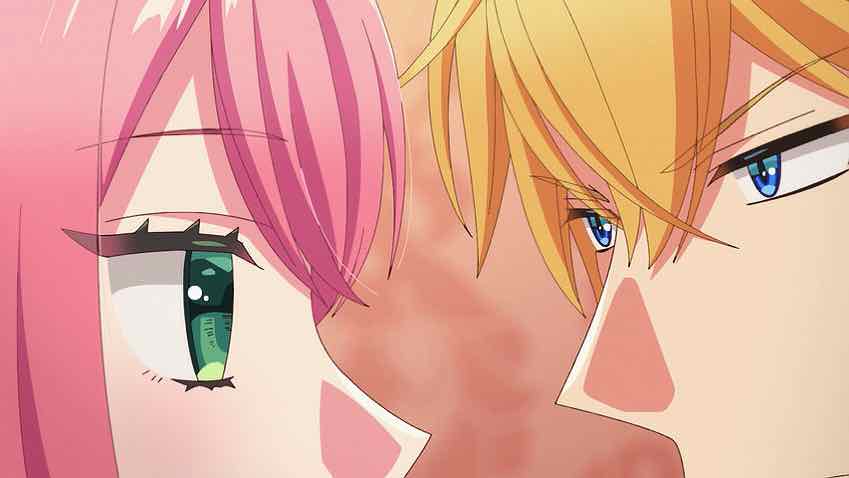![[HorribleSubs] Utakoi - 10 [720p].mkv_snapshot_04.07_[2012.09.03_17.22.26] [HorribleSubs] Utakoi - 10 [720p].mkv_snapshot_04.07_[2012.09.03_17.22.26]](https://lh3.ggpht.com/-6B8Gzp1-b-E/UEVWSknLwEI/AAAAAAABvu0/-Nz8EDag2Qw/%25255BHorribleSubs%25255D%252520Utakoi%252520-%25252010%252520%25255B720p%25255D.mkv_snapshot_04.07_%25255B2012.09.03_17.22.26%25255D_thumb.jpg?imgmax=800) |
![[HorribleSubs] Utakoi - 10 [720p].mkv_snapshot_14.37_[2012.09.03_17.33.54] [HorribleSubs] Utakoi - 10 [720p].mkv_snapshot_14.37_[2012.09.03_17.33.54]](https://lh3.ggpht.com/-BokfE63Ellc/UEVWUzlG9RI/AAAAAAABvvE/bpZu126WRTg/%25255BHorribleSubs%25255D%252520Utakoi%252520-%25252010%252520%25255B720p%25255D.mkv_snapshot_14.37_%25255B2012.09.03_17.33.54%25255D_thumb.jpg?imgmax=800) |
![[HorribleSubs] Utakoi - 10 [720p].mkv_snapshot_21.00_[2012.09.03_17.41.01] [HorribleSubs] Utakoi - 10 [720p].mkv_snapshot_21.00_[2012.09.03_17.41.01]](https://lh4.ggpht.com/-gak9bohzTwk/UEVWWvoM5XI/AAAAAAABvvU/7zyQtsXsXvo/%25255BHorribleSubs%25255D%252520Utakoi%252520-%25252010%252520%25255B720p%25255D.mkv_snapshot_21.00_%25255B2012.09.03_17.41.01%25255D_thumb.jpg?imgmax=800) |
The bittersweet tale of Sei Shounogon and Fujiwara no Yukinari concludes with one of Utakoi’s most powerful episodes yet.
For a time I thought this episode might focus on Fujiwara (another one!) no Kinto (Fukuyama Jun), the friend to Yukinari and Sanekata who we’d met only briefly. But while he’s important mainly in setting the stage for the doomed pair at the center of this arc, it is his poem from the Ogura that frames the episode:
Taki no oto wa
Taete hisashiku
NarinuredoNa koso nagarete
Nao kikoe kere
Though the waterfall
Ceased its flowing long ago,
And its sound is stilled,Yet, in name it ever flows,
And in fame may yet be heard.
Fujiwara no Kinto
![[HorribleSubs] Utakoi - 10 [720p].mkv_snapshot_00.20_[2012.09.03_17.19.22] [HorribleSubs] Utakoi - 10 [720p].mkv_snapshot_00.20_[2012.09.03_17.19.22]](https://lh4.ggpht.com/-THSc6dri8pE/UEVWYeMBCeI/AAAAAAABvvk/GwEIkZtT38s/%25255BHorribleSubs%25255D%252520Utakoi%252520-%25252010%252520%25255B720p%25255D.mkv_snapshot_00.20_%25255B2012.09.03_17.19.22%25255D_thumb.jpg?imgmax=800) This poem’s literal meaning is as it seems, for at least here it’s depicted as having been written (or rather, dictated to Yukinari) at the site of a former waterfall, now dry. But it’s a most fitting theme for the episode, which focuses heavily on the topics of impermanence and legacy. Kinto himself has been pressed into service starting a correspondence with Sei Shounogon by Sanekata, who worries for her state of mind as Empress Teishi’s position continues to worsen. Senekata himself (Shounogon’s first love, if you recall) passes away a few years after leaving the palace, but the main focus is on those he left behind.
This poem’s literal meaning is as it seems, for at least here it’s depicted as having been written (or rather, dictated to Yukinari) at the site of a former waterfall, now dry. But it’s a most fitting theme for the episode, which focuses heavily on the topics of impermanence and legacy. Kinto himself has been pressed into service starting a correspondence with Sei Shounogon by Sanekata, who worries for her state of mind as Empress Teishi’s position continues to worsen. Senekata himself (Shounogon’s first love, if you recall) passes away a few years after leaving the palace, but the main focus is on those he left behind.
This notion of impermanence is strong throughout the episode, including in the poem Kinto and Shounogon compose together via correspondence:
Snow falls like flower petals
From the wintry sky.
On this cold morning,
I gaze upon the snowfall as I would
Watch flower petals fall.
For but a moment,
I feel the coming of spring.
![[HorribleSubs] Utakoi - 10 [720p].mkv_snapshot_03.22_[2012.09.03_17.21.42] [HorribleSubs] Utakoi - 10 [720p].mkv_snapshot_03.22_[2012.09.03_17.21.42]](https://lh6.ggpht.com/-erHPDaKOtYQ/UEVWZixqwkI/AAAAAAABvv0/y7fiPNa7Tkk/%25255BHorribleSubs%25255D%252520Utakoi%252520-%25252010%252520%25255B720p%25255D.mkv_snapshot_03.22_%25255B2012.09.03_17.21.42%25255D_thumb.jpg?imgmax=800) Shounogon tells Yukinari later that memories aren’t meant to tie us to the past, but drive us towards the future – so that we can recall out memories with happiness, not sadness. The tragedy here is that both Yukinari and Shounogon are forced to choose the greater good over personal happiness. He, in advising the Emperor to wed the daughter of the powerful Michinaga, though it would further marginalize Teishi. She, in choosing to leave the palace after Teishi’s death rather than stay with Yukinari and look after Teishi’s children, so that she could complete The Pillow Book and make certain that Teishi’s memory was preserved in a positive light. There’s a definite theme to Utakoi that people just aren’t destined to get together and be happy, but I suppose if that weren’t the usual way of life, poetry wouldn’t exist.
Shounogon tells Yukinari later that memories aren’t meant to tie us to the past, but drive us towards the future – so that we can recall out memories with happiness, not sadness. The tragedy here is that both Yukinari and Shounogon are forced to choose the greater good over personal happiness. He, in advising the Emperor to wed the daughter of the powerful Michinaga, though it would further marginalize Teishi. She, in choosing to leave the palace after Teishi’s death rather than stay with Yukinari and look after Teishi’s children, so that she could complete The Pillow Book and make certain that Teishi’s memory was preserved in a positive light. There’s a definite theme to Utakoi that people just aren’t destined to get together and be happy, but I suppose if that weren’t the usual way of life, poetry wouldn’t exist.
![[HorribleSubs] Utakoi - 10 [720p].mkv_snapshot_05.21_[2012.09.03_17.23.41] [HorribleSubs] Utakoi - 10 [720p].mkv_snapshot_05.21_[2012.09.03_17.23.41]](https://lh5.ggpht.com/-qHKZPjUD5B8/UEVWbWt2BBI/AAAAAAABvwE/uZpGRyh4S4U/%25255BHorribleSubs%25255D%252520Utakoi%252520-%25252010%252520%25255B720p%25255D.mkv_snapshot_05.21_%25255B2012.09.03_17.23.41%25255D_thumb.jpg?imgmax=800) As was her relationship with Sanekata, this one is quite a sad affair. Yukinari tells Shounogon that the happiest times of his life were when they “talked about nothing”, and she replies that they’re currently suffering a “winter of parting” – after which will come a Spring, when they can recall their days together with happiness. I don’t know whether that actually happened – I rather doubt either of them were happy after their parting – but it’s a lovely yet heartbreaking way to leave them to the history books. From here it looks as if Utakoi will indeed take up the tale of the other great Lady of the Mid-Heian court, Murasaki – and no doubt in doing so, take up the story behind her “Tale of Genji” – possibly the most important work of fiction in the Japanese language.
As was her relationship with Sanekata, this one is quite a sad affair. Yukinari tells Shounogon that the happiest times of his life were when they “talked about nothing”, and she replies that they’re currently suffering a “winter of parting” – after which will come a Spring, when they can recall their days together with happiness. I don’t know whether that actually happened – I rather doubt either of them were happy after their parting – but it’s a lovely yet heartbreaking way to leave them to the history books. From here it looks as if Utakoi will indeed take up the tale of the other great Lady of the Mid-Heian court, Murasaki – and no doubt in doing so, take up the story behind her “Tale of Genji” – possibly the most important work of fiction in the Japanese language.
![[HorribleSubs] Utakoi - 10 [720p].mkv_snapshot_06.43_[2012.09.03_17.25.03] [HorribleSubs] Utakoi - 10 [720p].mkv_snapshot_06.43_[2012.09.03_17.25.03]](https://lh6.ggpht.com/--omejiFZQUs/UEVWc81pUNI/AAAAAAABvwU/4GP8Z6wS_qc/%25255BHorribleSubs%25255D%252520Utakoi%252520-%25252010%252520%25255B720p%25255D.mkv_snapshot_06.43_%25255B2012.09.03_17.25.03%25255D_thumb.jpg?imgmax=800) |
![[HorribleSubs] Utakoi - 10 [720p].mkv_snapshot_07.16_[2012.09.03_17.25.35] [HorribleSubs] Utakoi - 10 [720p].mkv_snapshot_07.16_[2012.09.03_17.25.35]](https://lh4.ggpht.com/-t45G5IjTuPI/UEVWfKT2UwI/AAAAAAABvwk/BHFDyguQmQw/%25255BHorribleSubs%25255D%252520Utakoi%252520-%25252010%252520%25255B720p%25255D.mkv_snapshot_07.16_%25255B2012.09.03_17.25.35%25255D_thumb.jpg?imgmax=800) |
![[HorribleSubs] Utakoi - 10 [720p].mkv_snapshot_07.53_[2012.09.03_17.26.13] [HorribleSubs] Utakoi - 10 [720p].mkv_snapshot_07.53_[2012.09.03_17.26.13]](https://lh3.ggpht.com/-mATM5KpdlKY/UEVWhOahPCI/AAAAAAABvw0/Jj-HafGprCw/%25255BHorribleSubs%25255D%252520Utakoi%252520-%25252010%252520%25255B720p%25255D.mkv_snapshot_07.53_%25255B2012.09.03_17.26.13%25255D_thumb.jpg?imgmax=800) |
![[HorribleSubs] Utakoi - 10 [720p].mkv_snapshot_08.59_[2012.09.03_17.27.19] [HorribleSubs] Utakoi - 10 [720p].mkv_snapshot_08.59_[2012.09.03_17.27.19]](https://lh3.ggpht.com/-tJPv_p8ZX_E/UEVWim0rDFI/AAAAAAABvxE/Lnl81I479gA/%25255BHorribleSubs%25255D%252520Utakoi%252520-%25252010%252520%25255B720p%25255D.mkv_snapshot_08.59_%25255B2012.09.03_17.27.19%25255D_thumb.jpg?imgmax=800) |
![[HorribleSubs] Utakoi - 10 [720p].mkv_snapshot_10.19_[2012.09.03_17.28.39] [HorribleSubs] Utakoi - 10 [720p].mkv_snapshot_10.19_[2012.09.03_17.28.39]](https://lh3.ggpht.com/-i8ok1DP3-C0/UEVWkXgYdUI/AAAAAAABvxU/hxKOJdbwLcw/%25255BHorribleSubs%25255D%252520Utakoi%252520-%25252010%252520%25255B720p%25255D.mkv_snapshot_10.19_%25255B2012.09.03_17.28.39%25255D_thumb.jpg?imgmax=800) |
![[HorribleSubs] Utakoi - 10 [720p].mkv_snapshot_11.15_[2012.09.03_17.29.35] [HorribleSubs] Utakoi - 10 [720p].mkv_snapshot_11.15_[2012.09.03_17.29.35]](https://lh5.ggpht.com/-2ydfdMTPYtM/UEVWlyzgl9I/AAAAAAABvxk/AiAEsMgrP-8/%25255BHorribleSubs%25255D%252520Utakoi%252520-%25252010%252520%25255B720p%25255D.mkv_snapshot_11.15_%25255B2012.09.03_17.29.35%25255D_thumb.jpg?imgmax=800) |
![[HorribleSubs] Utakoi - 10 [720p].mkv_snapshot_12.35_[2012.09.03_17.31.52] [HorribleSubs] Utakoi - 10 [720p].mkv_snapshot_12.35_[2012.09.03_17.31.52]](https://lh5.ggpht.com/-2h2EdDorHJs/UEVWnrn9zZI/AAAAAAABvx0/VeGTBWvuLf4/%25255BHorribleSubs%25255D%252520Utakoi%252520-%25252010%252520%25255B720p%25255D.mkv_snapshot_12.35_%25255B2012.09.03_17.31.52%25255D_thumb.jpg?imgmax=800) |
![[HorribleSubs] Utakoi - 10 [720p].mkv_snapshot_13.27_[2012.09.03_17.32.45] [HorribleSubs] Utakoi - 10 [720p].mkv_snapshot_13.27_[2012.09.03_17.32.45]](https://lh3.ggpht.com/-rrhlP7H7nWM/UEVWpEQh8mI/AAAAAAABvyE/3U8j_NgImyA/%25255BHorribleSubs%25255D%252520Utakoi%252520-%25252010%252520%25255B720p%25255D.mkv_snapshot_13.27_%25255B2012.09.03_17.32.45%25255D_thumb.jpg?imgmax=800) |
![[HorribleSubs] Utakoi - 10 [720p].mkv_snapshot_13.34_[2012.09.03_17.32.51] [HorribleSubs] Utakoi - 10 [720p].mkv_snapshot_13.34_[2012.09.03_17.32.51]](https://lh3.ggpht.com/-bmPq3rcweAA/UEVWqrrfuPI/AAAAAAABvyU/iTwu5NClADQ/%25255BHorribleSubs%25255D%252520Utakoi%252520-%25252010%252520%25255B720p%25255D.mkv_snapshot_13.34_%25255B2012.09.03_17.32.51%25255D_thumb.jpg?imgmax=800) |
![[HorribleSubs] Utakoi - 10 [720p].mkv_snapshot_16.15_[2012.09.03_17.35.32] [HorribleSubs] Utakoi - 10 [720p].mkv_snapshot_16.15_[2012.09.03_17.35.32]](https://lh4.ggpht.com/-X1wIj2m936s/UEVWsvLom5I/AAAAAAABvyk/a3QPD_U-34k/%25255BHorribleSubs%25255D%252520Utakoi%252520-%25252010%252520%25255B720p%25255D.mkv_snapshot_16.15_%25255B2012.09.03_17.35.32%25255D_thumb.jpg?imgmax=800) |
![[HorribleSubs] Utakoi - 10 [720p].mkv_snapshot_18.15_[2012.09.03_17.37.33] [HorribleSubs] Utakoi - 10 [720p].mkv_snapshot_18.15_[2012.09.03_17.37.33]](https://lh4.ggpht.com/-djPGU5STvcU/UEVWuGpeGLI/AAAAAAABvy0/WPJnX5LrbEA/%25255BHorribleSubs%25255D%252520Utakoi%252520-%25252010%252520%25255B720p%25255D.mkv_snapshot_18.15_%25255B2012.09.03_17.37.33%25255D_thumb.jpg?imgmax=800) |
![[HorribleSubs] Utakoi - 10 [720p].mkv_snapshot_19.53_[2012.09.03_17.39.36] [HorribleSubs] Utakoi - 10 [720p].mkv_snapshot_19.53_[2012.09.03_17.39.36]](https://lh4.ggpht.com/-1y94lP3r2y0/UEVWwtoMoDI/AAAAAAABvzE/lxaFw1jC0OQ/%25255BHorribleSubs%25255D%252520Utakoi%252520-%25252010%252520%25255B720p%25255D.mkv_snapshot_19.53_%25255B2012.09.03_17.39.36%25255D_thumb.jpg?imgmax=800) |
![[HorribleSubs] Utakoi - 10 [720p].mkv_snapshot_20.08_[2012.09.03_17.39.50] [HorribleSubs] Utakoi - 10 [720p].mkv_snapshot_20.08_[2012.09.03_17.39.50]](https://lh4.ggpht.com/-FcsmCtIPuPw/UEVWyNaezvI/AAAAAAABvzU/ZSAv_iU4Z2k/%25255BHorribleSubs%25255D%252520Utakoi%252520-%25252010%252520%25255B720p%25255D.mkv_snapshot_20.08_%25255B2012.09.03_17.39.50%25255D_thumb.jpg?imgmax=800) |
![[HorribleSubs] Utakoi - 10 [720p].mkv_snapshot_20.22_[2012.09.03_17.40.04] [HorribleSubs] Utakoi - 10 [720p].mkv_snapshot_20.22_[2012.09.03_17.40.04]](https://lh4.ggpht.com/-_Uqgi7qb1EI/UEVWzusci_I/AAAAAAABvzk/3G_srS3uLIQ/%25255BHorribleSubs%25255D%252520Utakoi%252520-%25252010%252520%25255B720p%25255D.mkv_snapshot_20.22_%25255B2012.09.03_17.40.04%25255D_thumb.jpg?imgmax=800) |
![[HorribleSubs] Utakoi - 10 [720p].mkv_snapshot_20.46_[2012.09.03_17.40.29] [HorribleSubs] Utakoi - 10 [720p].mkv_snapshot_20.46_[2012.09.03_17.40.29]](https://lh4.ggpht.com/-o0YMm5kRCtk/UEVW1BxqEoI/AAAAAAABvz0/Drpr9C2jg64/%25255BHorribleSubs%25255D%252520Utakoi%252520-%25252010%252520%25255B720p%25255D.mkv_snapshot_20.46_%25255B2012.09.03_17.40.29%25255D_thumb.jpg?imgmax=800) |
![[HorribleSubs] Utakoi - 10 [720p].mkv_snapshot_21.04_[2012.09.03_17.41.05] [HorribleSubs] Utakoi - 10 [720p].mkv_snapshot_21.04_[2012.09.03_17.41.05]](https://lh4.ggpht.com/-lqhmyCNqngM/UEVW3qgcT0I/AAAAAAABv0E/AnCOUflSeok/%25255BHorribleSubs%25255D%252520Utakoi%252520-%25252010%252520%25255B720p%25255D.mkv_snapshot_21.04_%25255B2012.09.03_17.41.05%25255D_thumb.jpg?imgmax=800) |
![[HorribleSubs] Utakoi - 10 [720p].mkv_snapshot_21.31_[2012.09.03_17.41.33] [HorribleSubs] Utakoi - 10 [720p].mkv_snapshot_21.31_[2012.09.03_17.41.33]](https://lh3.ggpht.com/-8YFF71mROLE/UEVW5_VyCsI/AAAAAAABv0U/96J3h4DXO80/%25255BHorribleSubs%25255D%252520Utakoi%252520-%25252010%252520%25255B720p%25255D.mkv_snapshot_21.31_%25255B2012.09.03_17.41.33%25255D_thumb.jpg?imgmax=800) |
![[HorribleSubs] Utakoi - 10 [720p].mkv_snapshot_22.32_[2012.09.03_17.42.54] [HorribleSubs] Utakoi - 10 [720p].mkv_snapshot_22.32_[2012.09.03_17.42.54]](https://lh3.ggpht.com/-dKsKUnZOrDA/UEVW8ZREHwI/AAAAAAABv0k/82owFi0t000/%25255BHorribleSubs%25255D%252520Utakoi%252520-%25252010%252520%25255B720p%25255D.mkv_snapshot_22.32_%25255B2012.09.03_17.42.54%25255D_thumb.jpg?imgmax=800) |





Kim
September 4, 2012 at 3:11 amUta Koi has some of the most compelling female characters of the year. Even better that they are based on historical fact.
Highway
September 4, 2012 at 3:59 amThis show does so well evoking feelings, especially for having what seems like such tangential contact with the characters. I know I cry at a lot of stuff, but this really was a touching story, especially Shounagon's response to Yukinari's rejection of the idea that he desires a return to their past relationship.
elianthos
September 4, 2012 at 3:52 pmUtakoi can really pack a punch (or could we say carve its niche like a steady stream) in its more legacy poetry and impermanence-focused episodes, doesn't it?
The interweaving of poems and relationships was particularly effective and affecting here imho.
'Shounogon tells Yukinari later that memories aren’t meant to tie us to the past, but drive us towards the future – so that we can recall out memories with happiness, not sadness.' Quite a powerful and nice bit of wisdom even regardless of its – very moving – episode context. Furthermore, while watching this sequence I couldn't help thinking ' from Utakoi #10 to Natsuyuki Rendez-vous #9, with love'.